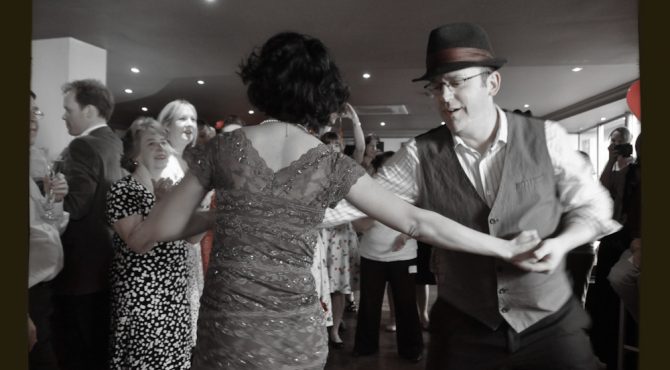
If you’ve been dancing for a while, you’ve probably been in a class where a new beginner is struggling with the steps. Your instinct might be to step in and offer some guidance—to explain the move differently, correct their footwork, or give them extra tips. After all, you just want to help, right?
I completely understand your good intentions, but here’s something to consider: when an experienced dancer starts ‘teaching’ a beginner in class, it can actually have the opposite effect. Instead of feeling supported, the beginner often feels overwhelmed, confused, or even discouraged. They might worry they’re doing everything wrong, feel pressured to get it ‘right’ immediately, or even dread coming back.
Focus on Your Own Learning Instead
Instead of focusing on the new person’s learning, shift your focus to your own. How well can you adapt to your new partner? Social dancing isn’t about perfecting steps or performing—it’s about adapting. Adapting to different partners, different energy levels, different interpretations of the music.
Each time you dance with someone new, challenge yourself to adjust your movement to connect with them. Can you match their timing? Can you sense their comfort level and create a dance that feels good for both of you? Instead of trying to ‘fix’ their dancing, see how well you can adapt to the moment.
Why ‘Helping’ Can Be Counterproductive
When you correct or explain things in your own way, you’re introducing a different perspective than what the teacher is presenting. This can contradict the lesson, disrupt the flow of the class, and leave the beginner unsure of who to listen to. It also takes them out of the natural learning process—making mistakes, experimenting, and gradually improving at their own pace.
The Best Support You Can Give
Instead of instructing, correcting, or ‘helping’ during class, try these instead:
✅ Smile warmly and encouragingly – Let them know it’s okay to stumble. Every dancer has been there!
✅ Allow mistakes to happen – It’s all part of the learning process. Trust that they will improve with time, just like you did.
✅ Be a friendly presence – If you want to support a beginner, the best time to do so is before or after class. A simple chat, a kind word, or a shared laugh about the learning journey can make them feel truly welcome.
Dancing is All About Adapting
At the heart of social dancing is the ability to adapt—not just to different music, but to different partners and even to your own energy levels, which may change from week to week. The best dancers aren’t the ones who execute perfect moves; they’re the ones who can adjust, connect, and make every dance enjoyable for themselves and their partner.
So next time you dance with a beginner, resist the urge to teach—simply enjoy the dance, offer a warm smile, and let them discover their own way. Your patience, encouragement, and ability to adapt will do far more to support their learning than any technical tip ever could. 💛